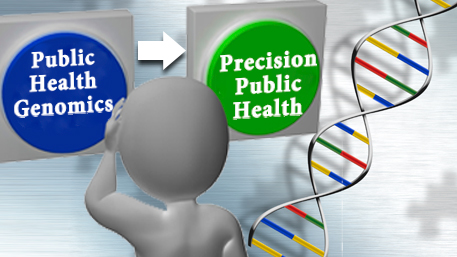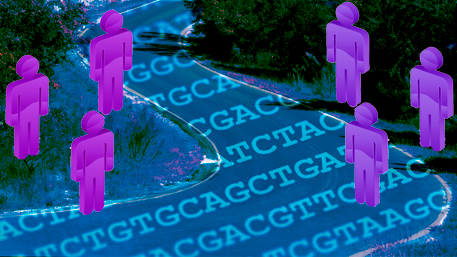Search Results
10 results for pharmacogenomic
Genomic Medicine Year in Review 2019: What’s Hot for Public Health Impact?

Advances in genomic medicine continue at a fast and steady pace. In a recent paper, The Genomic Medicine Working Group of the National Advisory Council for Human Genome Research of the National Human Genome Research Institute identified the most significant advances in genomic medicine among 48 recognized “accomplishments” published during the 12 months ending August 31,
Posted on byGenetic Counseling and Public Health in the Era of Precision Medicine

In August 2019, the All of Us Research Program announced the funding of a nationwide resource to provide genetic counseling support to one or more million participants in the precision medicine cohort in the United States. Participants from diverse populations will share health information over time through surveys and electronic health records, and they will
Posted on by 1 CommentPublic Health Genomics: What’s Next?

In the 1990’s, the excitement surrounding the Human Genome Project led the public health community to plan for the future role of genomics in health care and disease prevention. The field of public health genomics was launched to identify opportunities for the new science to impact health, inform public health programs and health care providers
Posted on byA Road Map for Evaluation and Appropriate Implementation of Genome Sequencing to Improve Population Health

This blog is a summary of our recently published paper in PLOS Medicine, and is an update of my 2011 blog on “binning” the human genome. A common vision for genomic medicine is that genome sequencing will be routinely used in health systems to provide health care and preventive services tailored to each individual. For
Posted on bySaving a Million Hearts: One Heart at a Time!

Cardiovascular disease (CVD), principally ischemic heart disease and stroke, remains the leading cause of U.S. deaths for men and women and all races and ethnicities in spite of major progress in its prevention and treatment. CVD is also the greatest contributor to racial disparities in life expectancy. In 2012, 120 public and private partners and
Posted on byDear John, There’s no point in waiting any longer. Let’s call it quits…

In 1999, Dr. Francis Collins, director of the Human Genome Project, provided a bold vision for what the practice of genomic medicine might soon look like. Collins described the case of a hypothetical man named “John,” a 23 year-old smoker living a decade into the future in 2010. “His substantial risk of contracting lung cancer
Posted on by 4 CommentsGenomics and Precision Medicine: How Can Emerging Technologies Address Population Health Disparities? Join the Conversation.

Advances in genome sequencing, other “omic” technologies, and big data promise a new era of personalized medicine. However, there is an ongoing discussion how these new technologies can be used to understand and address existing population health disparities. On October 11, 2017, the Precision Medicine and Population Health Interest Group in the Division of Cancer
Posted on by 1 CommentIs pharmacogenetic-guided treatment cost-effective? No one size fits all!

A recently published article by M. Verbelen and colleagues in The Pharmacogenomics Journal is called, “Cost-effectiveness of pharmacogenetic-guided treatment: are we there yet?” As Betteridge’s law of headlines states, any headline that ends in a question mark can be answered by the word No. Regrettably, although that article presents useful information, it ends up by
Posted on by 2 CommentsWhole Genome Sequencing for All? The Quest for Evidence Continues

In 1999, Dr. Francis Collins predicted what the practice of genomic medicine in primary care may look like in 2010. He used a hypothetical patient named John, a 23-year-old man with high serum cholesterol. Based on his father’s history of early onset heart disease, John underwent a battery of genetic tests. He was found to
Posted on by 3 CommentsGenomics and Population Health Action: Join the Collaboration

In February 2017, I attended a one-day meeting of leaders of the Genomics and Population Health Action Collaborative (GPHAC). This group of more than 40 organizations and individuals is dedicated to the integration of genomics into clinical and public health programs to save lives and prevent disease. (Details on GPHAC and its membership can be
Posted on by

